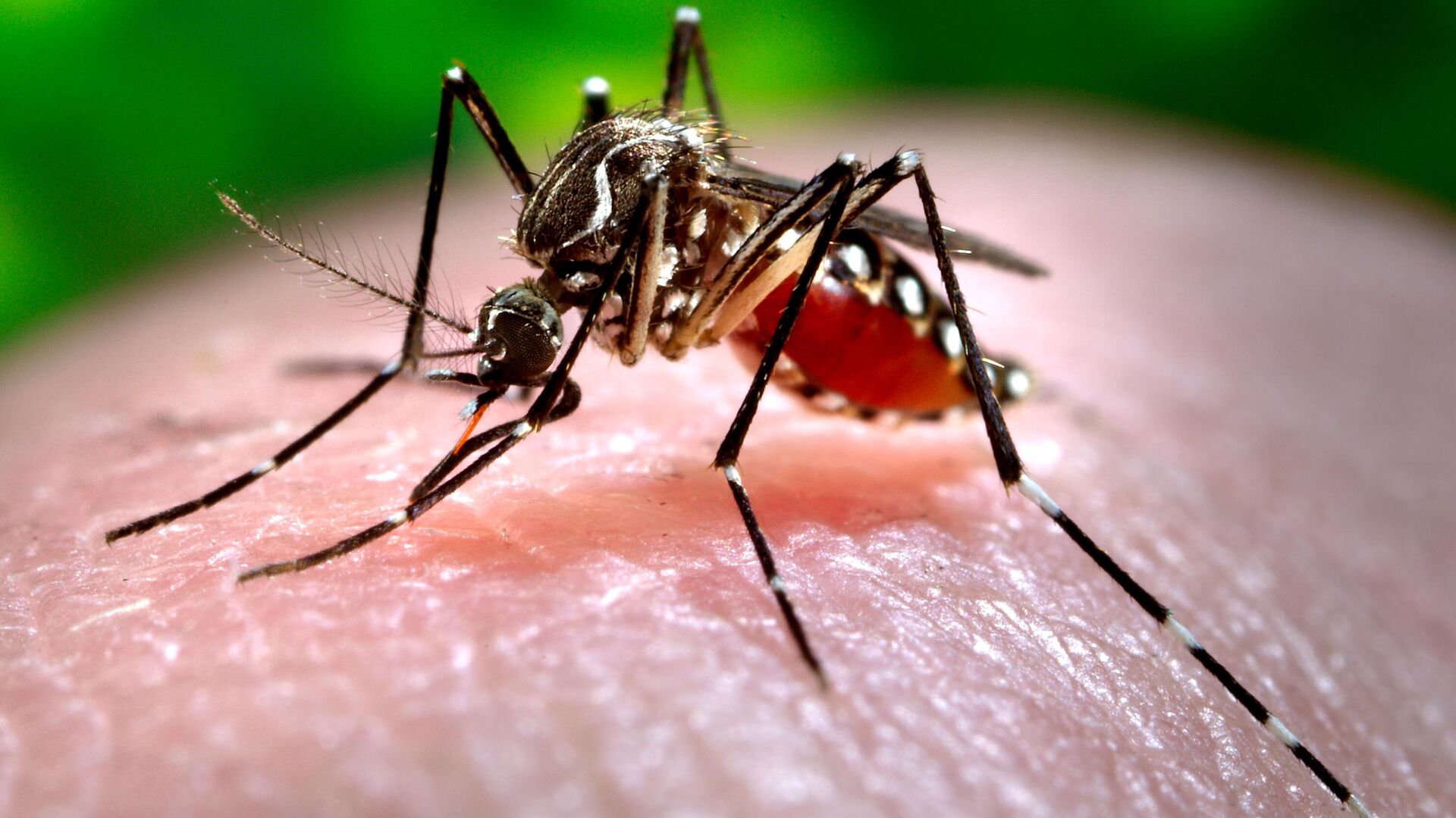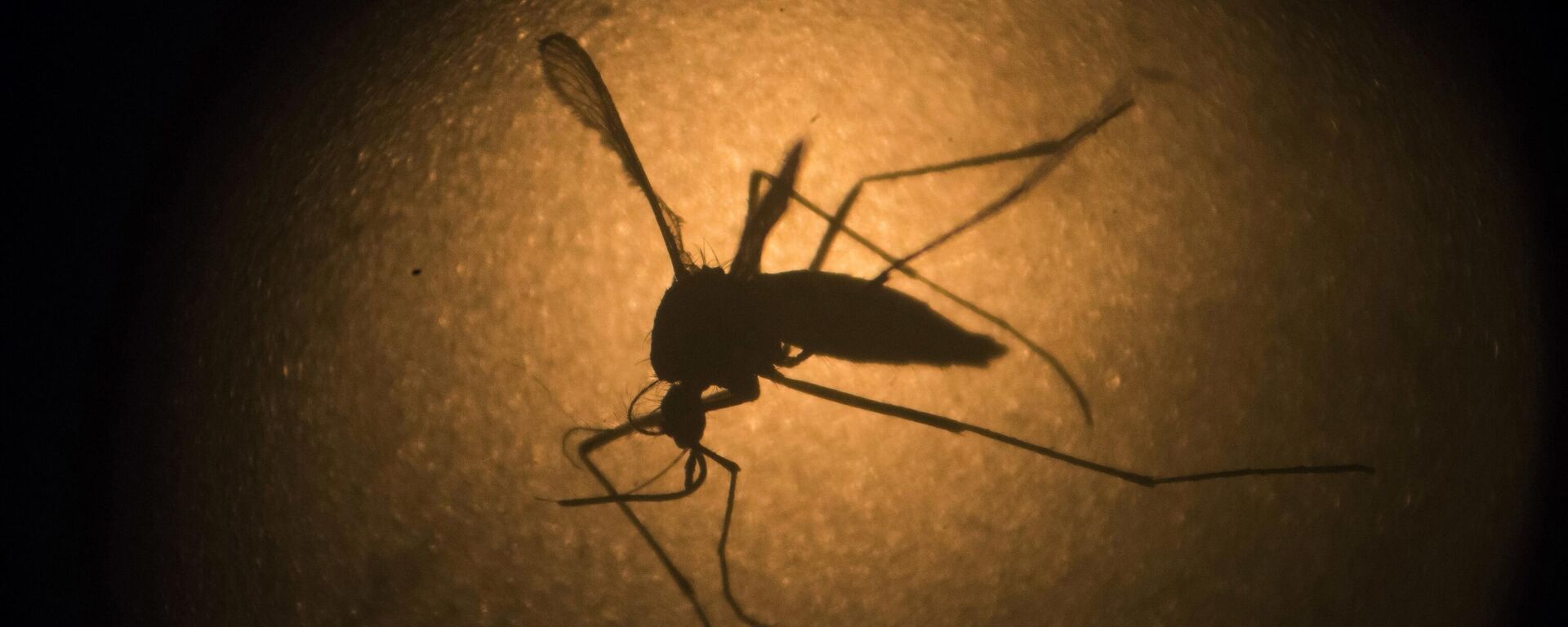https://sputnikglobe.com/20231007/dengue-fever-may-spread-to-europe--us-by-end-of-2030-1113994496.html
Dengue Fever May Spread to Europe & US by End of 2030 - WHO
Dengue Fever May Spread to Europe & US by End of 2030 - WHO
Sputnik International
As global temperatures continue to rise, WHO issued a warning: Dengue fever, a tropical disease, is on the brink of becoming endemic in parts of US, Europe, and Africa over the next decade.
2023-10-07T00:52+0000
2023-10-07T00:52+0000
2023-10-07T00:49+0000
beyond politics
us
disease
world health organization (who)
europe
https://cdn1.img.sputnikglobe.com/img/07e7/01/0e/1106324012_0:190:2967:1858_1920x0_80_0_0_5b026ef6c3982d23f3690538d8045fda.jpg
As global temperatures continue to rise, the World Health Organization (WHO) has issued a warning: Dengue fever, a tropical disease, is on the brink of becoming endemic in parts of US, Europe, and Africa over the next decade.Dengue fever, a mosquito-borne illness, has long plagued Southeast Asia and Latin America, causing approximately 20,000 deaths annually. However, recent years have seen an eightfold increase in cases since 2000, with climate change expanding the habitat of dengue-carrying mosquitoes and sprawling cities providing ample opportunities for these insects to thrive.Bangladesh is currently grappling with its worst-ever dengue outbreak, with over 208,000 cases and 1,000 deaths recorded since January. In Europe, the number of locally acquired dengue cases surged last year, surpassing the total for the entire previous decade. Isolated cases have also been reported in parts of the US, including Florida and Texas.One of the major concerns voiced by WHO is the potential strain on hospitals, particularly in poorer countries, should dengue cases surge.The underlying cause of this alarming spread of dengue may be rooted in the relentless rise in global temperatures. Since the 1970s, temperatures have been steadily increasing, with the Earth's surface now approximately 0.86 degrees Celsius warmer than the 20th-century average. This trend, exemplified by the 10-warmest years on record all occurring since 2010, is a clear indication of the ongoing challenges posed by climate change.
https://sputnikglobe.com/20230721/three-cases-of-dengue-fever-registered-in-northeastern-france-1112043713.html
Sputnik International
feedback@sputniknews.com
+74956456601
MIA „Rossiya Segodnya“
2023
News
en_EN
Sputnik International
feedback@sputniknews.com
+74956456601
MIA „Rossiya Segodnya“
Sputnik International
feedback@sputniknews.com
+74956456601
MIA „Rossiya Segodnya“
dengue fever, is dengue fever endemic in europe, is dengue fever endemic in us, what is dengue fever, where can i catch dengue fever, dengue disease, dengue vaccines, dengue mosquito
dengue fever, is dengue fever endemic in europe, is dengue fever endemic in us, what is dengue fever, where can i catch dengue fever, dengue disease, dengue vaccines, dengue mosquito
Dengue Fever May Spread to Europe & US by End of 2030 - WHO
Dengue fever is transmitted by Aedes aegypti mosquitoes, which differ from the Anopheles mosquitoes responsible for spreading malaria. These mosquitoes are active during both day and night and can be found indoors and outdoors.
As global temperatures continue to rise, the World Health Organization (WHO) has issued a warning: Dengue fever, a tropical disease, is on the brink of becoming endemic in parts of US, Europe, and Africa over the next decade.
Dengue fever, a mosquito-borne illness, has long plagued Southeast Asia and Latin America, causing approximately 20,000 deaths annually. However, recent years have seen an eightfold increase in cases since 2000, with climate change expanding the habitat of dengue-carrying mosquitoes and sprawling cities providing ample opportunities for these insects to thrive.
Bangladesh is currently grappling with its worst-ever dengue outbreak, with over 208,000 cases and 1,000 deaths recorded since January. In Europe, the number of locally acquired dengue cases surged last year, surpassing the total for the entire previous decade. Isolated cases have also been reported in parts of the US, including Florida and Texas.
Symptoms of dengue include fever, muscle spasms, nausea, and, in severe cases, excruciating joint pain, earning it the nickname 'bone-break fever.' Fortunately, most patients recover within two weeks, and less than 1% of cases prove fatal.
There are two vaccines available: Dengvaxia, widely approved but requiring prior exposure to the disease, and Qdenga, approved last year in the UK, EU, and select South American and Asian countries.
One of the major concerns voiced by WHO is the potential strain on hospitals, particularly in poorer countries, should dengue cases surge.
"The clinical care is really intensive. It requires a high ratio of nurses to patients," warns WHO Chief Scientist Jeremy Farrar, expressing particular concern for sub-Saharan Africa where resources are often limited.
The underlying cause of this alarming spread of dengue may be rooted in the relentless rise in global temperatures. Since the 1970s, temperatures have been steadily increasing, with the Earth's surface now approximately 0.86 degrees Celsius warmer than the 20th-century average. This trend, exemplified by the 10-warmest years on record all occurring since 2010, is a clear indication of the ongoing challenges posed by climate change.



